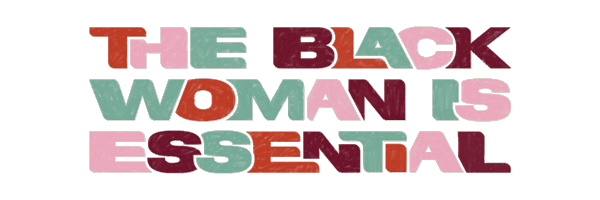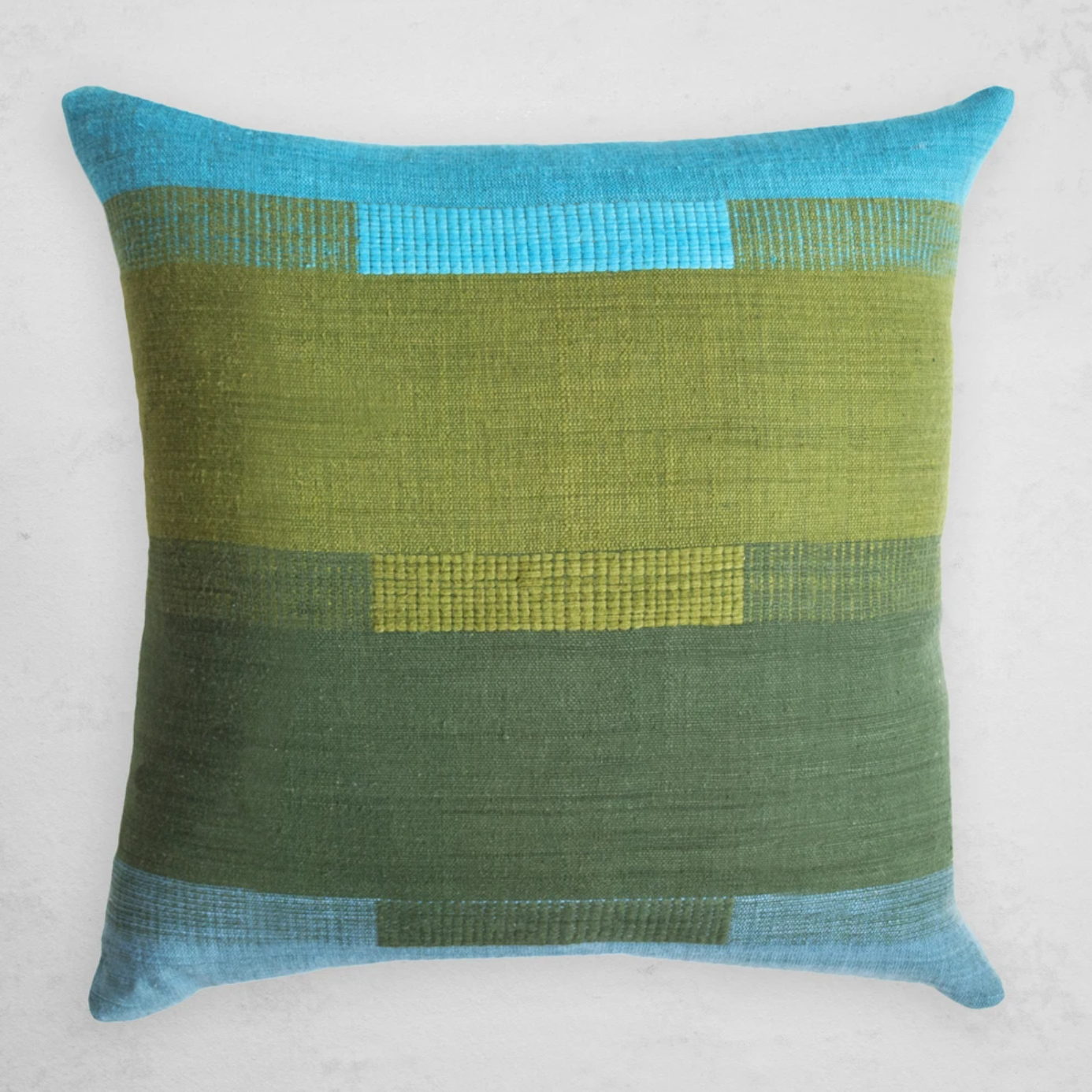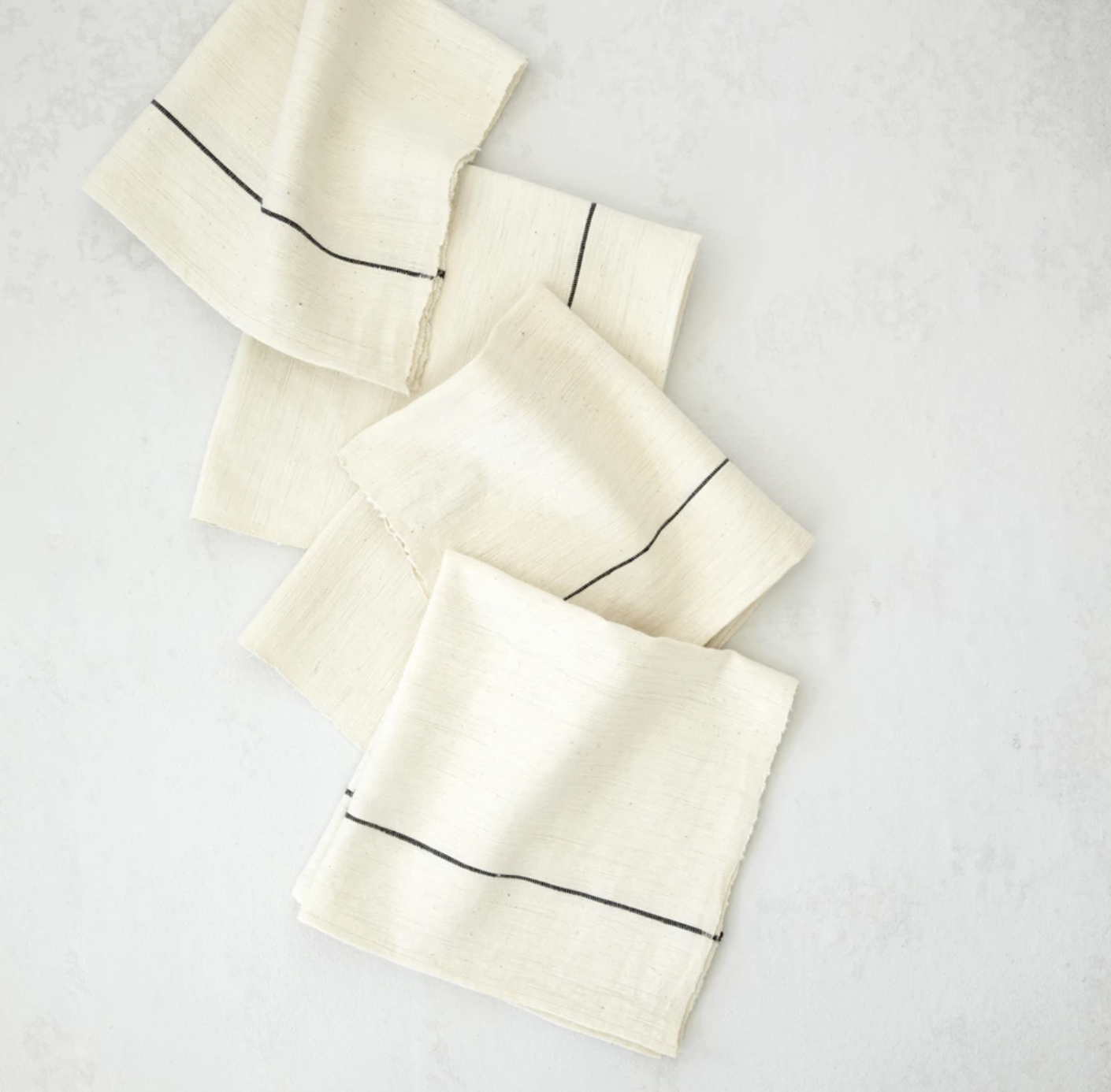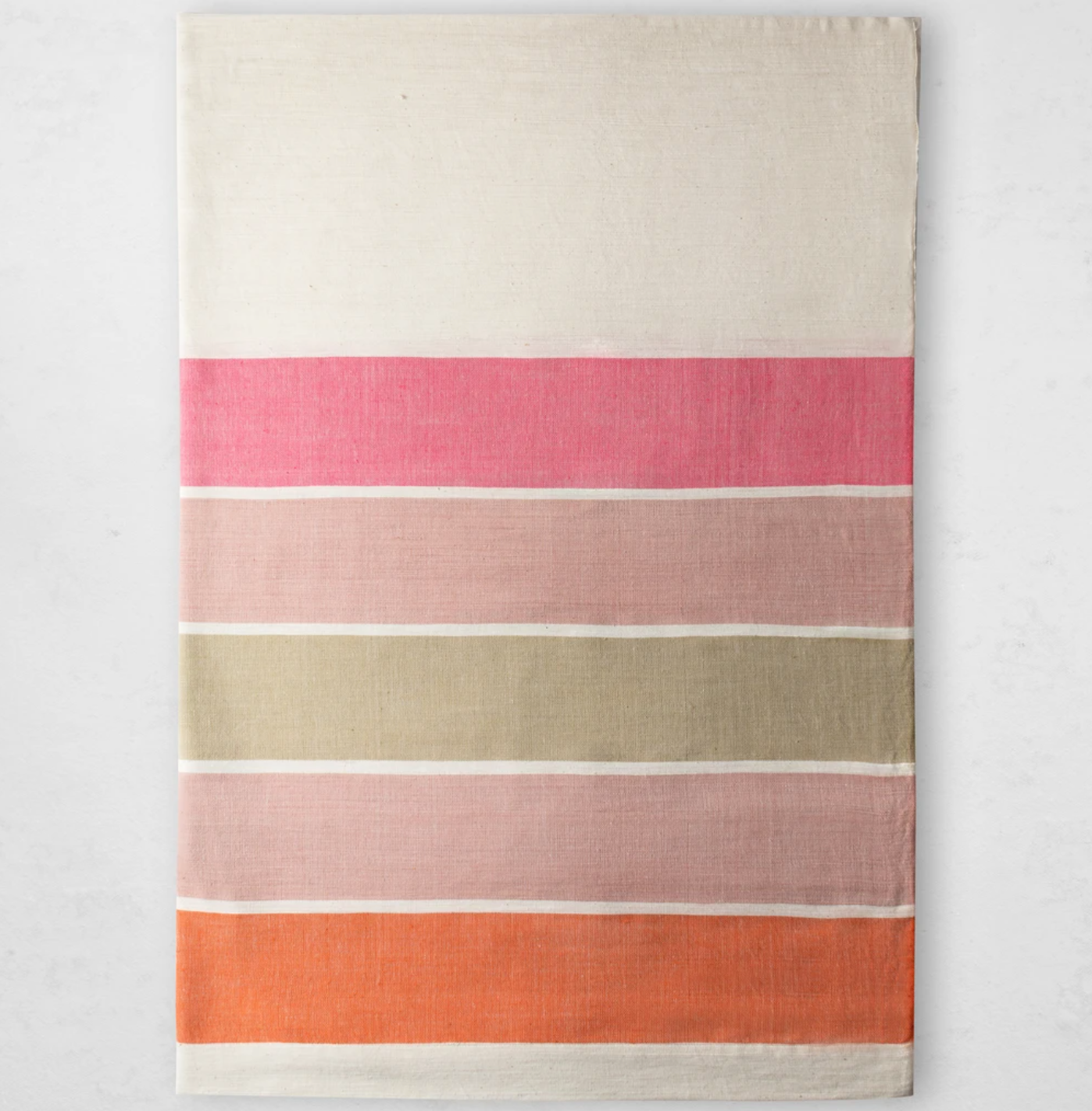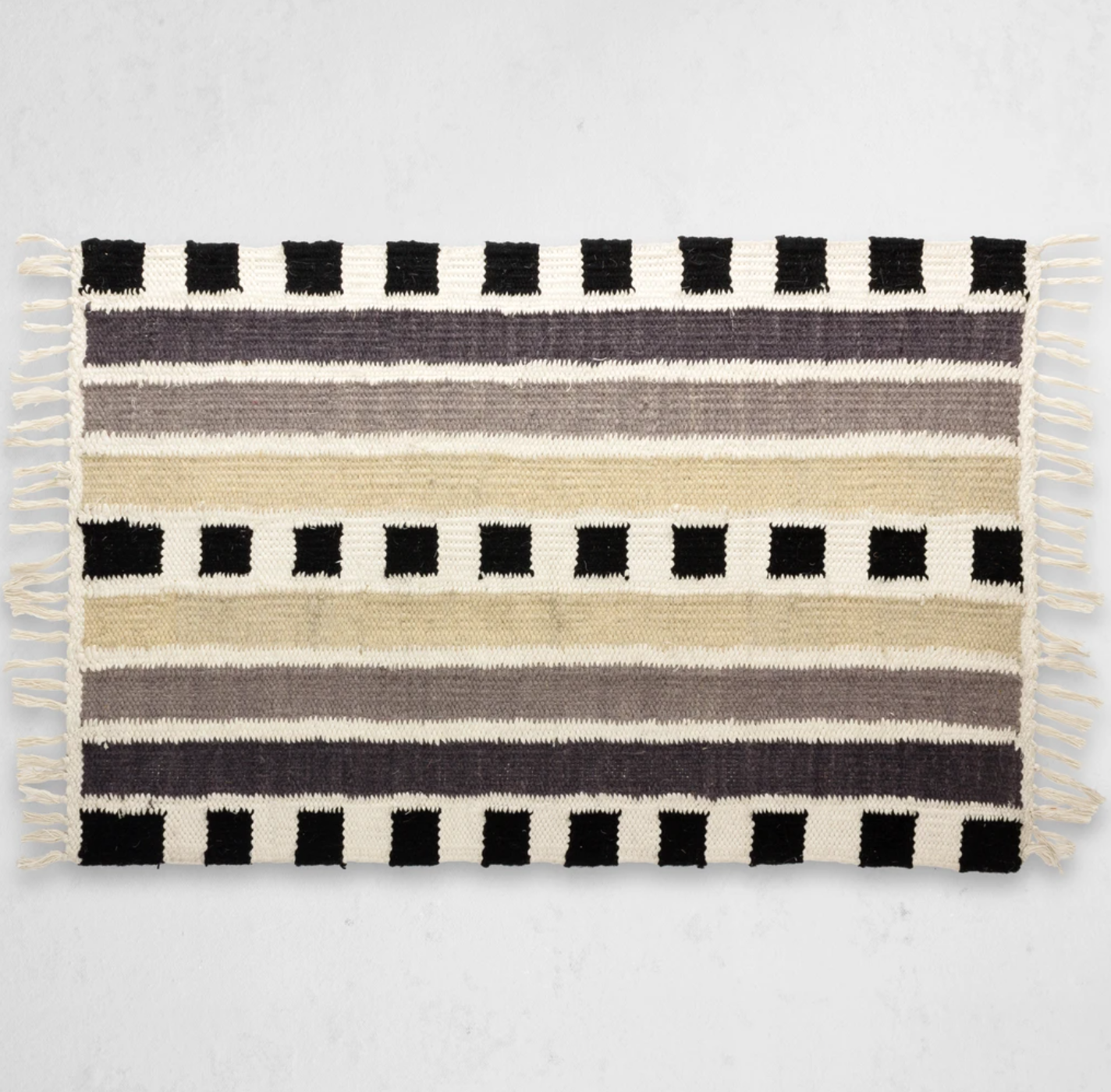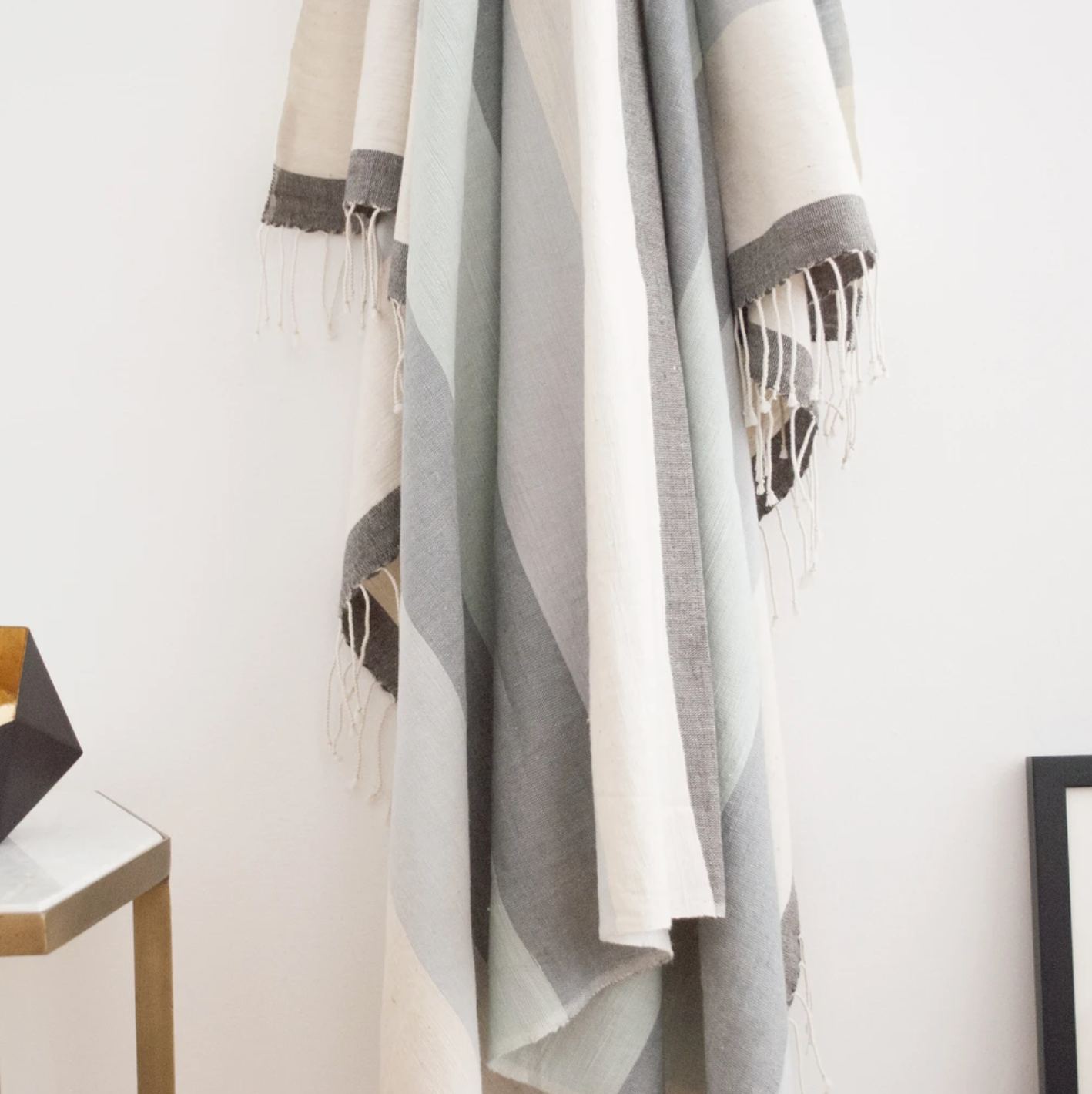Textile Designer Hana Getachew On The Power Of Intentional Home Decor
Black women have long been overlooked and underserved across all industries, an injustice that is finally being brought to the forefront, with Black women leading the movement against racial inequality. To honor just how truly essential Black women are, Unbothered has partnered with Target to share the stories of those who are fighting for inclusivity, challenging stigmas, and prioritizing mental health — stories that shed light on their incredible strength, ambition, and humanity.
For Hana Getachew, the Ethiopian-American founder of Bolé Road Textiles, a love of textiles can be traced back to childhood, stemming from one garment in particular: her mother’s dress for the Mels, an Ethiopian tradition that takes place during a wedding ceremony. She remembers it in excruciating detail — from the olive green shade and the waist-cinching A-line silhouette, right down to the gilded threadwork and golden daisies.
AdvertisementADVERTISEMENT
“We’d always take it out and play with it. We were obsessed with it,” Getachew says. There were others, too, that she loved: dresses from friends and family, brought when they visited from Ethiopia. “In Ethiopia, weavers would come up with non-traditional syncopated patterns, with elements of symmetry and diamond designs. That has stayed with me, and I put a lot of it into my work today.”
Getachew speaks about her career as two different lives: her life as an interior designer (before she launched Bolé Road), and her life after. It’s the latter — as the mastermind behind the home decor brand inspired by her own connections to family and the African diaspora — that has granted her the liberty to experiment and express herself genuinely through a world enriched in color, shapes, textures, and patterns.
“I knew I was a good interior designer, but I felt like anyone could do it. It wasn’t unique to me; I wanted to find something that is essential to my soul,” she says about working at an architecture firm for almost 11 years, decorating commercial interiors and offices. “One day, my coworker told me her friend quit her full-time job to work on her pillow business. And I was like, Yes, that’s what I’m gonna do.”
The concept for Bolé Road lived in her mind for almost eight years before she found the courage to execute it. In 2008, the same year Getachew’s ideas were growing, everyone around her was losing their jobs, which led many of them to dream-chase and become entrepreneurs. “The maker movement,” she proclaims. “I’m very risk-averse, which is not a good trait as an entrepreneur. That’s why I didn't leap into this, but when I saw a whole movement happening, I thought maybe I could do this too.”
AdvertisementADVERTISEMENT
Getachew left her career in interior design in 2014, but spent years prior to that preparing for the transition. She took free business classes at NYC Small Business Services and scouted artisans through word of mouth, the internet, and asking around in Ethiopia. A year later, she officially launched her brand on the same day as the Brooklyn Designs annual show. (The best piece of advice she received: “Just start, don’t overthink it.”)
“It was an amazing event, and it was an incredible way to launch, rather than hit publish on a website and wait,” she says, likening the experience to a graduation, being surrounded by family, friends, and former coworkers. “Those kinds of events are really great for understanding how people respond to [your product] and getting your first round of feedback.”
Everything about Bolé Road revolves around intention, identity, and gratitude to the heritage and community that supported Getachew most, from the colors and patterns inspired by Ethiopian landscapes to the name of the company.
“I lived in Bole [a neighborhood in Addis Ababa, the capital of Ethiopia] with my family until we moved to Canada when I was three, and Bole Road, which used to be a charming little street, is now a major thoroughfare,” says Getachew, who emphasizes the significance of this road, which has marked pivotal journeys she’s made in her life (the first being when she left and the second being when she returned to visit 20 years later). “The Admas collection is inspired by the mountainscapes of Ethiopia and the color palette reflects the misty gradations of sunrises and sunsets from my memory. It’s art based off my lived experience.”
AdvertisementADVERTISEMENT
When she moved to Canada as a child, she distinctly remembers sensing that she was no longer home. But when she looked up, she saw mountains in the distance, and thought it was Ethiopia. Now, she recognizes that home decor makes people feel more connected to and grounded in the four walls in which they dwell. In her case, it’s a way of paying homage to her heritage. It’s coziness threaded in artistic, historic wonder and laced by the fabrics of Blackness, Ethiopia, and personal duty.
Quarantine has impacted Getachew professionally, personally, and domestically. She was all set to move into a new storefront down the street from her studio in Brooklyn, having just finished light construction on the space — painting walls, hanging fixtures, arranging furniture — when lockdown happened. Thankfully, she hadn’t signed the lease yet, and her business coach advised her to keep it that way.
“If I was a bit more headstrong, I would not have listened to her, because nothing in me agreed with her decision,” Getachew says. “But I spoke to another mentor of mine who said it was a good idea. Damn. So that was it. I had to heed their advice.”
Instead, Getachew left her Brooklyn apartment and moved upstate to Kingston, NY into a home that’s spacious and natural but unfamiliar. So she started redecorating, turning to Bolé Road products and, in the process, developing a new relationship with her brand as a consumer. She placed colorful pillows in the living room and den. She selected woven bath mats, limited-edition robes, and towels for the bathroom. And she swapped paper napkins for cloth ones in her dining area. “I’ve learned to live with my textiles,” she says, “and it has increased my love for them even more.”
AdvertisementADVERTISEMENT
Despite this growing pride for her product and building a stronger connection to her home, sales were slow for Bolé Road online at the beginning of the pandemic. Getachew was nervous, but as people began spending more time at home, they set out to make their spaces as cozy as possible — and sales spiked as a result. She started hosting digital sample sales from her living room and developed an intimate relationship with her followers.
“But then George Floyd was murdered and all hell broke loose. I dealt with that fallout on a personal level. And shortly after, the whole movement to recognize Black business owners and Black creatives completely transformed my business,” Getachew says. “In a few days I got over 20,000 followers. I was mentioned in every design publication I ever wanted to hear from. I was in Beyoncé’s Black Parade. It was insane.”
The challenge for Black creatives is the balancing act of being crushed by the trauma of police brutality, racism, and Black fatality, against this newfound attention and opportunities from white institutions. “It’s like an old boyfriend who wanted me back,” she compares. “I’ve always been here, grinding so hard. Every Black person knows what it's like to feel invisible. But now people are coming to the table saying, ‘Maybe we did overlook you.’
To reclaim control in these situations and to ensure a sincere, thoughtful partnership with retailers, Getachew has devised a vetting process by asking questions. “Whenever I sign on a new retailer, I make sure to talk about why we’re here,” she says. “Do you have an initiative to sign on more Black designers? Tell me about it. How did you find me? Let’s bring that to the table, so I can feel comfortable and not pretend I’ve been on your radar all this time.”
AdvertisementADVERTISEMENT
It hasn’t been easy, she says, to be a Black professional and work with white counterparts, to make them feel comfortable at your own expense. But she knows that understanding the intentions of both parties is necessary in order to achieve “something that feels like a truce.” What is easy for her is design, which to her, is nothing more than problem-solving and aesthetic.
“You talk to clients, understand their needs, and try to exceed their expectations with a design solution that’s functional, beautiful, uplifting, and meets their physical, mental, and emotional needs,” she says. “Imagine if we all approached the situations in our lives with that much consciousness and intent. Where would we be?”
shop 5 products
AdvertisementADVERTISEMENT








